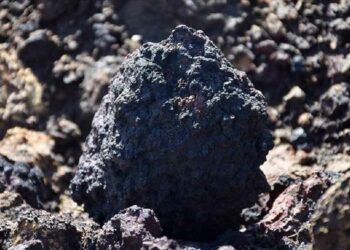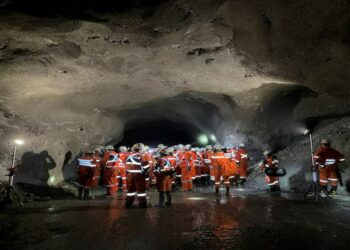Chinese authorities have unveiled the results of study into the nation’s uranium deposits, which puts its reserves at over 2 million tonnes, government’s Xinhua News Agency reports.
According to the head of China Nuclear geology (CNG), Du Yunbin, the country’s uranium deposits have doubled in the last 15 years to more than 350 across the nation.
The news come as China continues to expand its nuclear program, officially resuming construction of new plants after a 15-months hiatus, beginning with the fifth unit at the Hongyanhe nuclear plant in Liaoning.
With the move, Beijing intends to become self-sufficient not just in nuclear power plant capacity, but also in the production of fuel for those plants.
Domestic uranium mining currently supplies less than a quarter of China’s nuclear fuel needs
Domestic uranium mining currently supplies less than a quarter of China’s nuclear fuel needs, according to data from The World Nuclear Association. Exploration and plans for new mines have increased significantly since 2000, and state-owned firms are also acquiring uranium resources internationally.
To boost discoveries, the nation has created a multi-dimensional search system for uranium mines, which includes space remote sensing as well as airborne, ground-based and deep-mining exploration, the official said.
Supporting new projects will be critical to China achieving its 2020 target of 58 gigawatts of installed nuclear capacity by 2020, up from about 20 gigawatts today. The government wants to raise the role of nuclear-power production in China’s energy mix, part of an effort to draw down reliance on polluting coal.
China is the world’s largest nuclear growth market. The country operates 24 reactors currently and a further 25 are under construction, out of 68 globally, according to the IAEA.
While Beijing doesn’t disclose total spending, estimates based on the cost of reactors show the country is investing tens of billions of dollars in potential new business for Chinese and foreign companies over the coming decade








